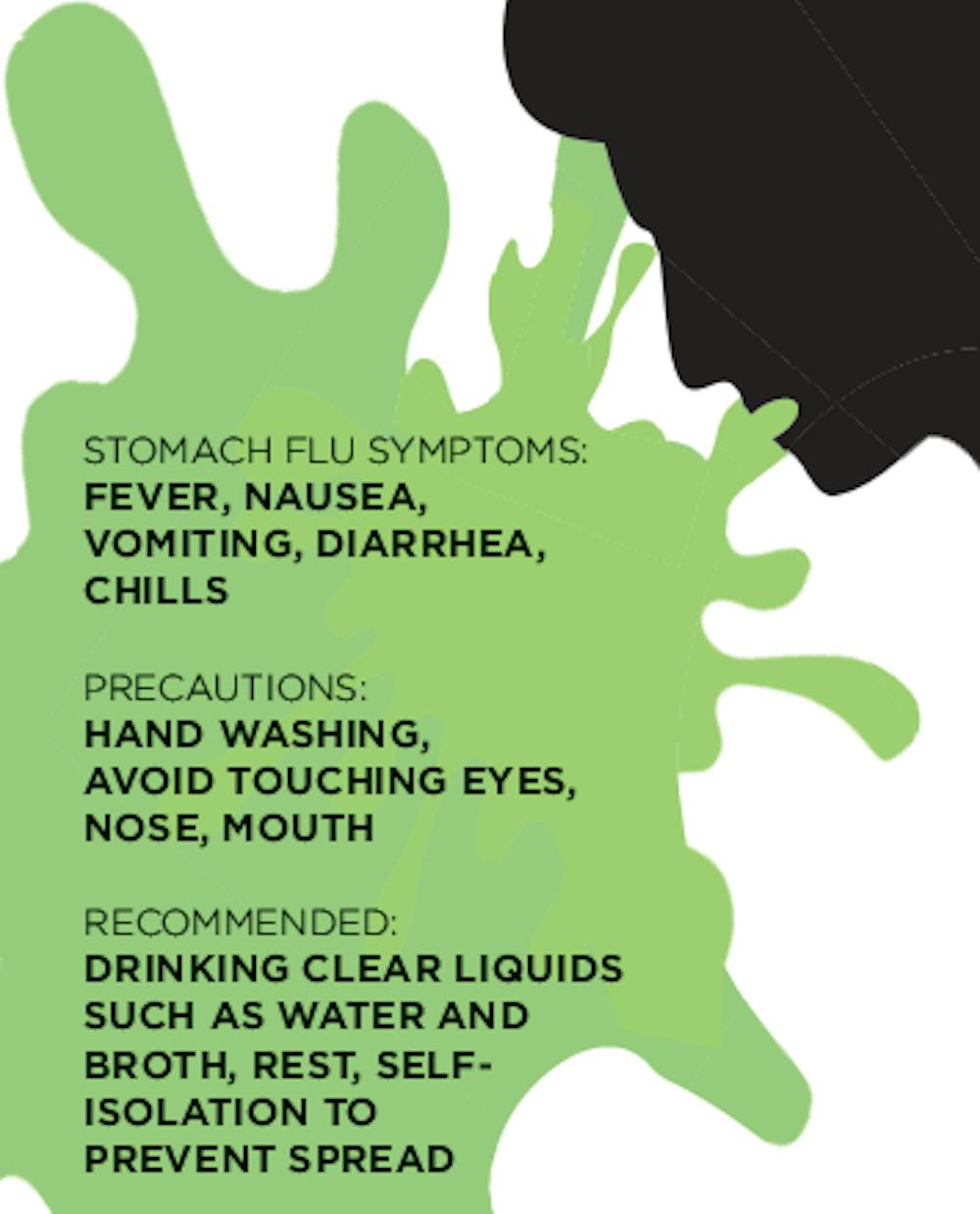Kimberly Lam thought she had food poisoning from campus food. She woke up Monday vomiting and felt pain when she stood up.
“It hit me really fast,” Lam, a junior nursing major, said. “I was fine the night before, I decided to go to sleep early, woke up the next morning and realized I needed to vomit. And that’s when it all went downhill.”
Campus Living sent an email on April 6 to notify students about the spread of the stomach flu and how to prevent it. The email said the illness is not suspected to be food poisoning because students ate different foods at various locations. University food service workers are taking precaution by extra hand washing and staying home if sick.
Susan Snyder, director of Health Services, says many students have come in with the stomach flu but Health Services doesn’t know how many students because it’s “hard to quantify.”
Lam is a resident adviser and thinks she got the virus from one of her residents. When her pain didn’t go away after vomiting, along with her high fever, chills and throbbing head, she ruled out food poisoning and realized she had the stomach flu.
She tried to go to class but had to run out in the middle of class to vomit. The virus lasted 48 hours.
“It literally just hits you and once it hits you and you get better, it leaves and you are back to normal. I feel perfectly fine now,” Lam said.
People can have the virus without showing any symptoms for 24 to 60 hours, according to Janine Schnell, a nurse practitioner for the Buffalo Medical Group.
Symptoms include fever, nausea, vomiting and diarrhea, which can cause weakness and fatigue, according to Schnell. The virus can last two to five days.
“It’s a self limiting virus meaning it’s going to come and it’s going to go pretty much regardless of what you do,” Schnell said. “It has to run its course and once you have it there’s no way to get rid of it, just with supportive measures until you feel better.”
Schnell said antibiotics can do nothing for the virus and the most important thing is rehydration of clear liquids.
“It’s highly contagious and it just takes one person giving it to another and college is a close community, so the transmission of the virus is quite easy,” Schnell said.
Snyder advises students and faculty to self-isolate themselves if they have the stomach virus. She said the biggest way to prevent it is hand washing, avoiding touching eyes, mouth and not sharing food or drinks. Snyder said immune systems drop with stress.
“We just need a sort of uptick in our hygiene practice to prevent the stomach flu and other illnesses,” Snyder said.
Hannah Stein is a co-senior news editor and can be reached at hannah.stein@ubspectrum.com





